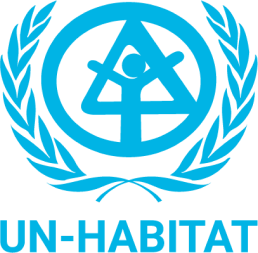With the coordination of Fukuoka City, the Solid Waste Management Adviser’s Network Fukuoka (SWAN-Fukuoka), UN-Habitat Myanmar, and UN-Habitat Bangkok Liaison Office, participants from UN-Habitat Myanmar and selected INGO/NGO in Myanmar, visited Bangkok and Chonburi in Thailand from September 5th to September 9th, 2022. The program was designed to exchange knowledge and share understanding of the Fukuoka method of solid waste management, considering future potential replication.
On the first day, the mission team visited the Pollution Control Department (PCD) under the Ministry of Natural Resource and Environment and the Bangkok Metropolitan Administration (BMA) in Bangkok City to understand solid waste management in Thailand at both regional and local levels. The team got an overview about the policies, strategies, and master plans related to solid waste management in Thailand. Different presentations were given by UN-Habitat, BMA, and PCD, and participants engaged in active discussion.
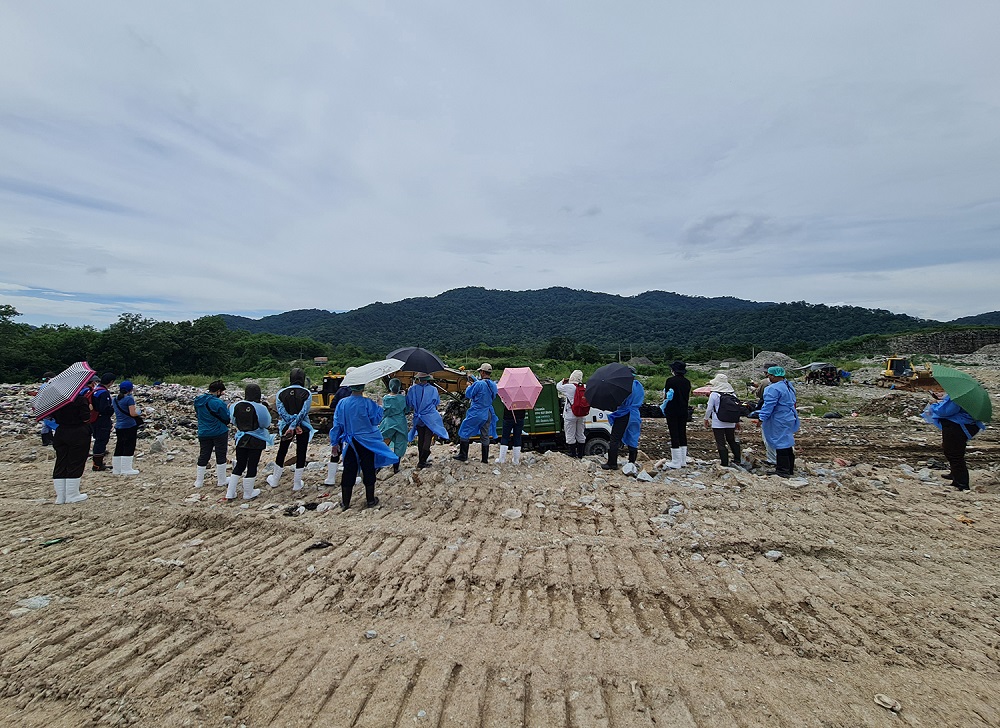
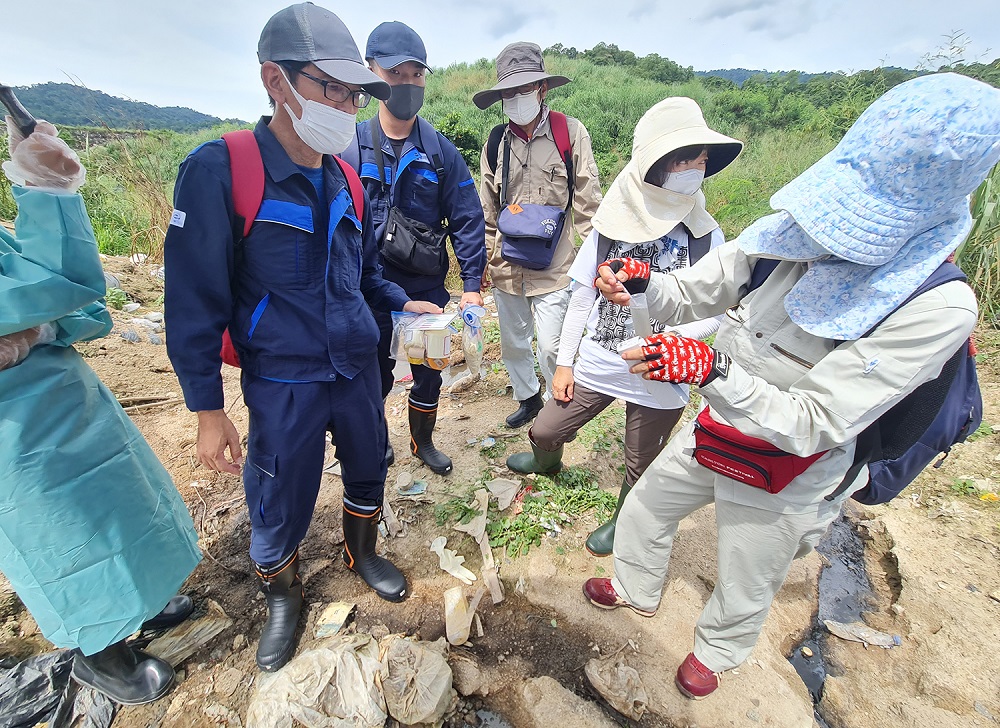
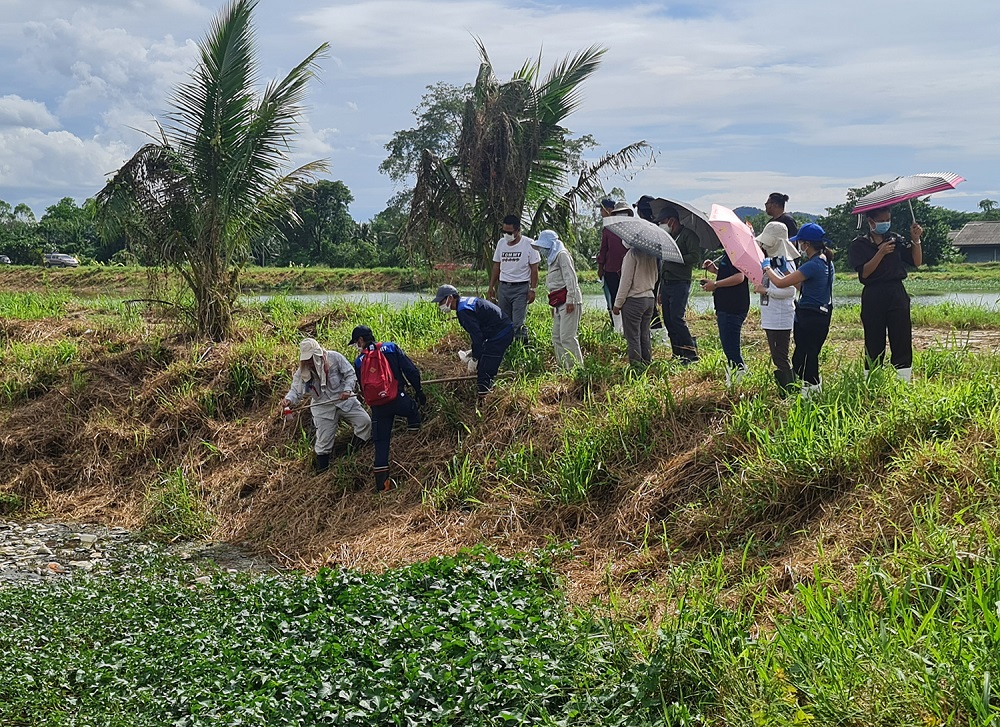
On the second day, the visiting team participated in a knowledge and experience sharing session to gain a better understanding of the Fukuoka method projects focusing on technical aspects, municipal waste management systems, and waste collection and disposal facility challenges. The team visited the Saen Suk disposal site, where Fukuoka experts demonstrated on-site monitoring of leachate and a rapid assessment of waste condition.
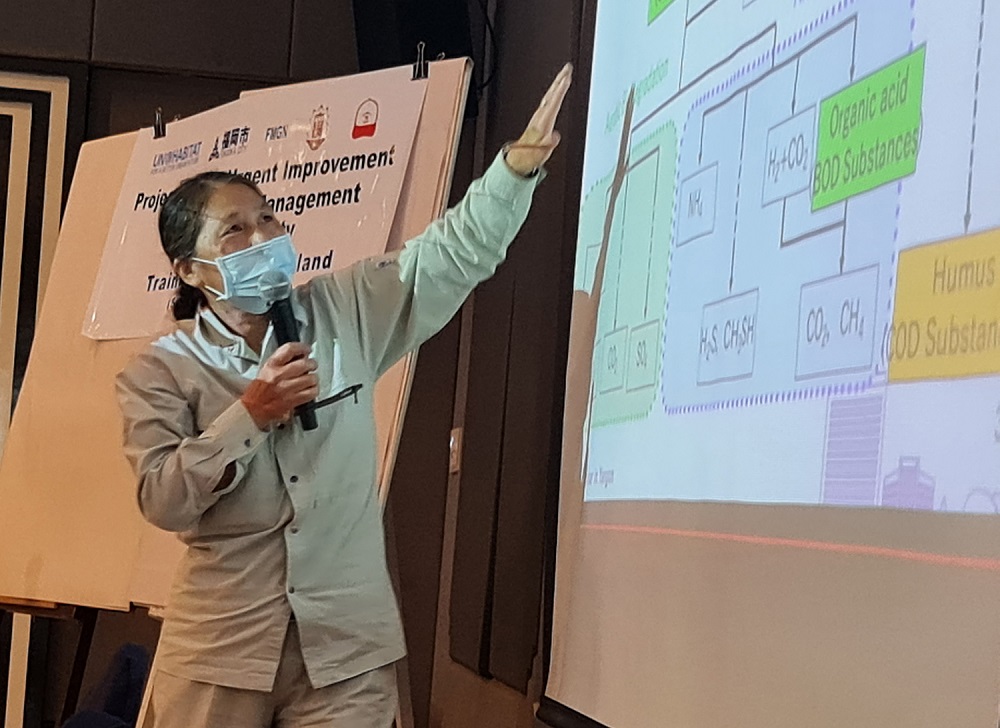
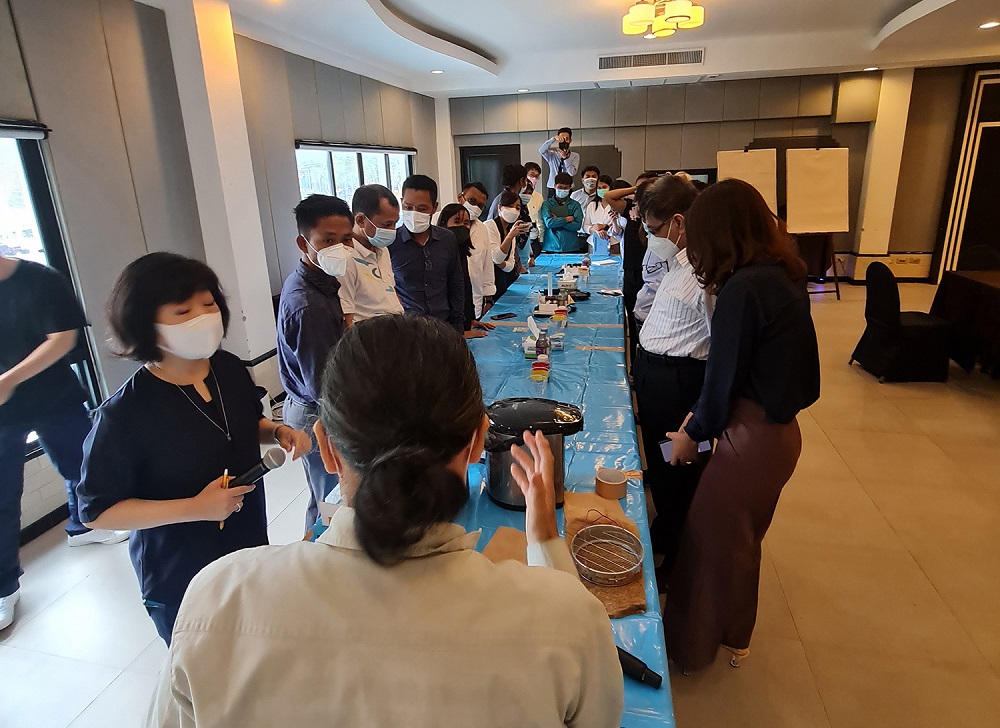
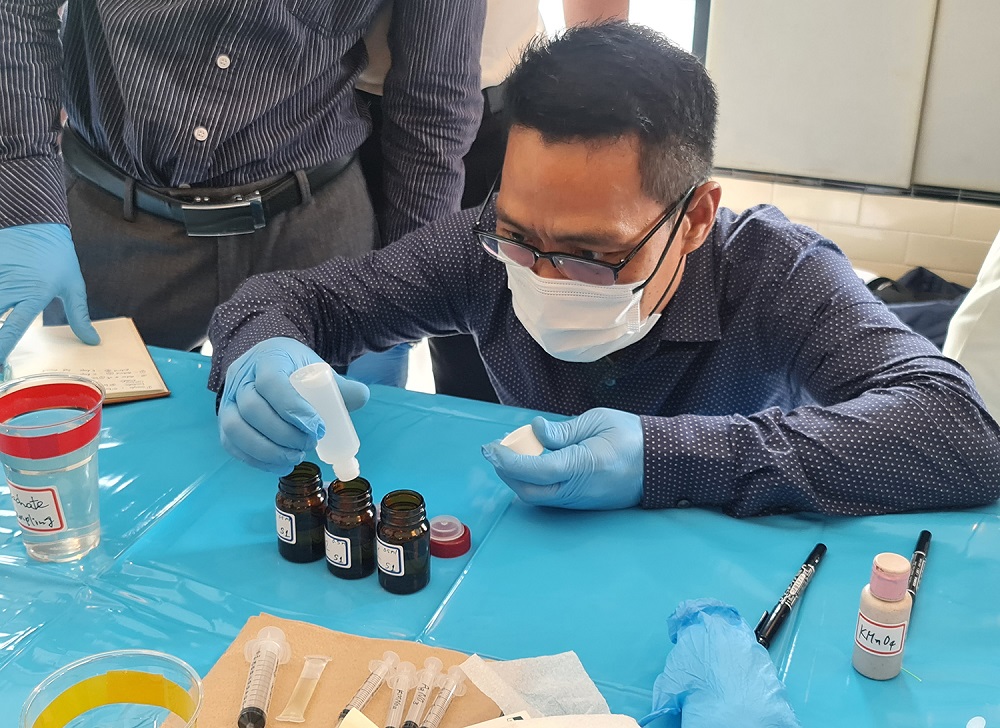
The third day focused on environmental monitoring (leachate monitoring). Experts from Fukuoka city, Fukuoka University, and SWAN demonstrated the simple chemical tests for PH, EC, chlorine, and COD measurements of leachate samples. The participants were divided into four groups to test the leachate collected at four different points in the Saen Suk final disposal site. This simple leachate monitoring method was newly invented by Fukuoka University, so that it can be easily and regularly conducted at landfill sites where resources and equipment are limited. This leachate monitoring is vital to measure the pollution level of the leachate and for reassurance that the leachate control systems are preventing the environmental pollution. The trainees actively participated in the demonstrations and learned the measurement and calculation methods of leachate quality monitoring.
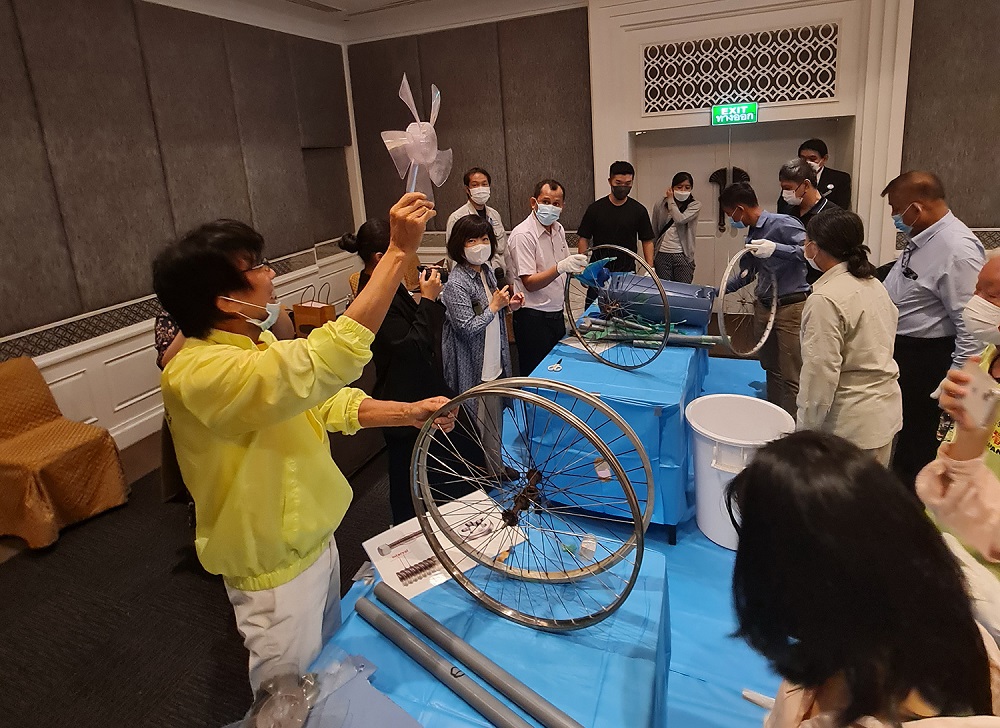
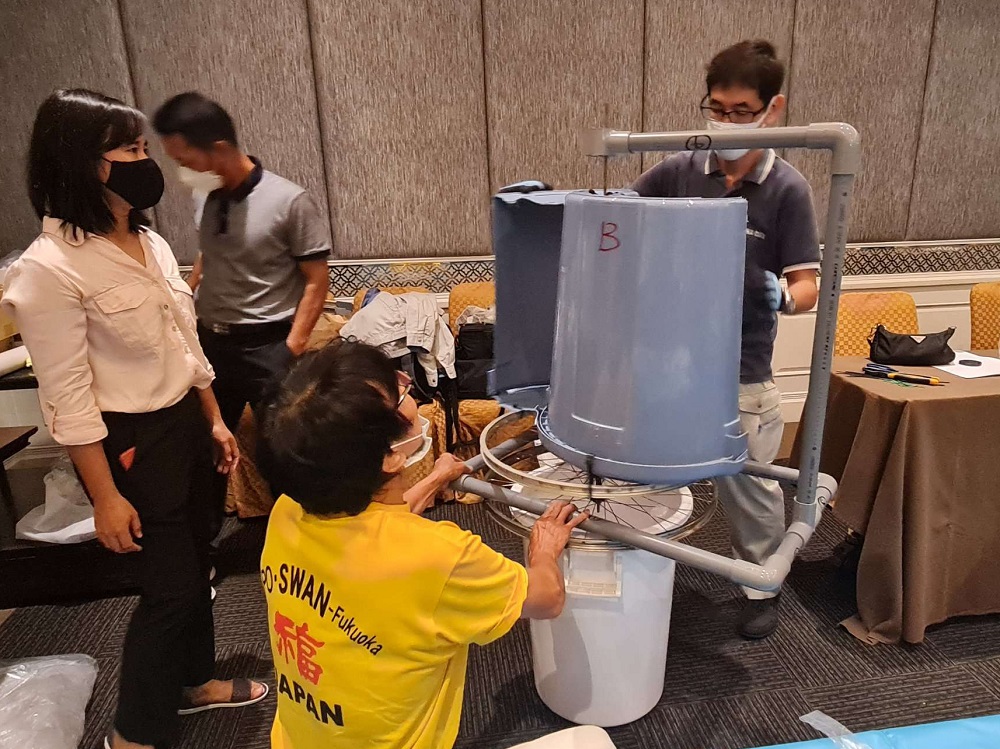
On the fourth day, eco-fan training was held, emphasizing the advantages of using the eco-fan as a low-cost, user-friendly, and sustainable leachate treatment system suitable for developing countries. The Fukuoka experts demonstrated eco-fan installation and application in various countries, Myanmar being a potential user of the fan system in the future. The Fukuoka experts also demonstrated the step-by-step installation of the eco-fan, with the active participation of the team members.
A knowledge exchange workshop on the fifth and final day supported peer learning among Fukuoka City, UN-Habitat, UNEP, Bokashi, Thant Myanmar, Doh Eain and AIT-BORDA, to benefit from the lessons and to share valuable experience in the solid waste management sector. The training emphasized waste analysis, wastewater treatment technologies, and developing sustainable holistic waste management plans. The session also shared a quick guide video on the Fukuoka method of solid waste management used at the Fukuoka final disposal site.
Participants
- Fukuoka City
- NPO Solid Waste Management Adviser’s Network Fukuoka (SWAN-Fukuoka)
- Selected INGO/NGO in Myanmar related to solid waste management sector (Doh Eain, Thant Myanmar and Bokashi)
- UN-Habitat Myanmar
- UN-Habitat Bangkopk Liaison Office
